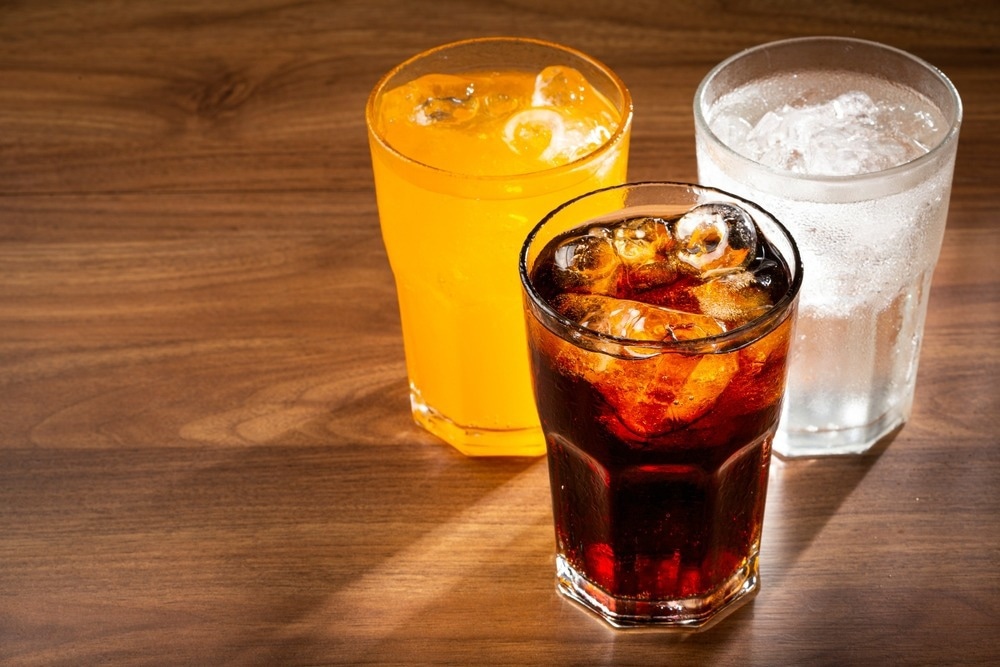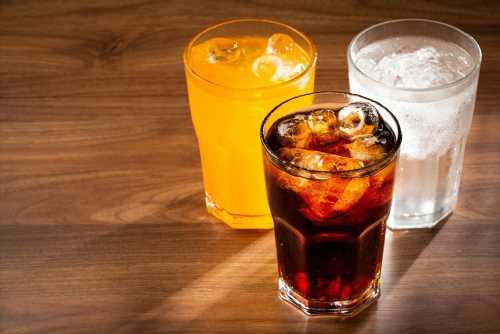A recent study published in Preventive Medicine found that messaging campaigns discouraging the consumption of unhealthy beverages were more promising than those promoting healthy drinks among parents in the United States (US).

Background
Overconsumption of sugary beverages leads to weight gain, type 2 diabetes, cardiovascular disease, and obesity. In contrast, drinking water ensures hydration, and replacing sugary drinks with water can lower body weight and improve fasting glucose and blood pressure. Despite the declining intake of sugar-sweetened beverages over the past decade, nearly 40% of adults consume them on any given day. Messaging campaigns are promising for improving beverage intake.
Mass media campaigns have reduced the purchase and intake of sugary drinks while increasing the consumption of low-fat milk and water. Messaging interventions adopt different approaches to promote healthier beverage consumption; for instance, campaigns may emphasize the risks of overconsumption or encourage using healthier beverages. Notwithstanding, it remains unclear which approach(es) would be more beneficial.
About the study
In the present study, researchers evaluated how parents in the US respond to messages that discourage soda intake, promote water, or both. They recruited a convenience sample of US parents with at least one child aged 2 – 12 in 2019. Participants were randomized to one of the four messaging conditions – 1) control message, 2) soda discouragement, 3) water encouragement, and 4) soda discouragement and water encouragement messages.
The messages were adapted from the “Pouring on the Pounds” campaign. The soda discouragement message included an image of soda turning into fat while being poured into a glass. The water encouragement message had a picture of water turning into a body silhouette as it was poured into a glass. Participants viewed their assigned messages and completed an online survey in English/Spanish before providing demographic details.
The primary outcomes were perceived message effectiveness for discouraging soda and encouraging water, assessed with three items adapted from the University of North Carolina (UNC) Perceived Message Effectiveness (PME) scale. The secondary outcomes were affective reactions and intentions associated with drinking soda or water.
Findings
The team recruited 1,078 US parents with an average age of 35.3. Around 48% of participants identified as Latino, and most Latino respondents were from Mexico. Most participants were White (74%), 13% were Black/African, and 11% were of other races. Approximately half the sample had an annual household income below $50,000.
Participants receiving the soda intake discouraging message had higher perceived discouragement from drinking soda than those who did not receive this message. Moreover, this message also caused more negative feelings about soda intake and stronger intentions to avoid soda. Participants receiving this message expressed higher encouragement, positive feelings, and stronger intentions to drink water.
Similarly, subjects assigned to the water encouragement message had higher encouragement for water intake than those who did not receive this message. It also led to more positive feelings and stronger intentions to drink water.
Contrastingly, the encouragement message did not produce spillover effects on soda-related outcomes. That is, it discouraged participants from drinking soda but did not influence feelings about soda intake or intentions to avoid soda.
The authors found that the discouragement message had a more substantial effect on soda consumption-related outcomes than the water encouragement message. The discouragement message had stronger effects on perceived discouragement, feelings about soda intake, and intentions to avoid soda. In contrast, the two messages had a similar impact on water consumption-related outcomes.
Notably, the research team observed that the effect of either message weakened when both were presented to participants. Discouragement from drinking soda was decreased when participants viewed both messages concurrently. The same trend was evident in participants’ feelings and intentions for soda consumption.
Conclusions
To summarize, messages that discouraged drinking soda or promoted water intake resulted in participants having higher perceived encouragement for drinking water, with more positive feelings and stronger intentions to consume water. In addition, the soda discouragement message produced a higher perceived discouragement, more negative feelings, and intentions to avoid soda.
Moreover, there were favorable spillover effects on outcomes related to water consumption with the soda discouragement message. Therefore, the findings suggest that messages, especially those aimed at discouraging sugary drinks, could improve beverage consumption.
- Grummon, A. et al. (2022) "Should messages discourage sugary drinks, encourage water, or both? A randomized experiment with U.S. parents", Preventive Medicine, p. 107417. doi: 10.1016/j.ypmed.2022.107417. https://www.sciencedirect.com/science/article/abs/pii/S0091743522004820
Posted in: Medical Science News | Medical Research News
Tags: Blood, Blood Pressure, Cardiovascular Disease, Diabetes, Fasting, Glucose, Hydration, Medicine, Obesity, Research, Type 2 Diabetes

Written by
Tarun Sai Lomte
Tarun is a writer based in Hyderabad, India. He has a Master’s degree in Biotechnology from the University of Hyderabad and is enthusiastic about scientific research. He enjoys reading research papers and literature reviews and is passionate about writing.
Source: Read Full Article



